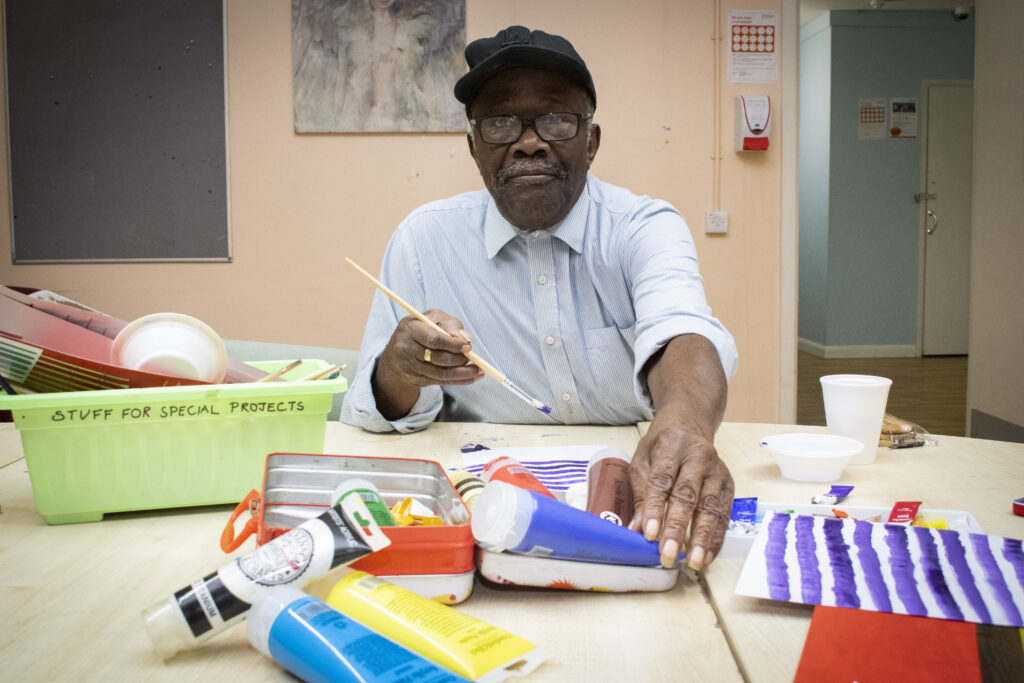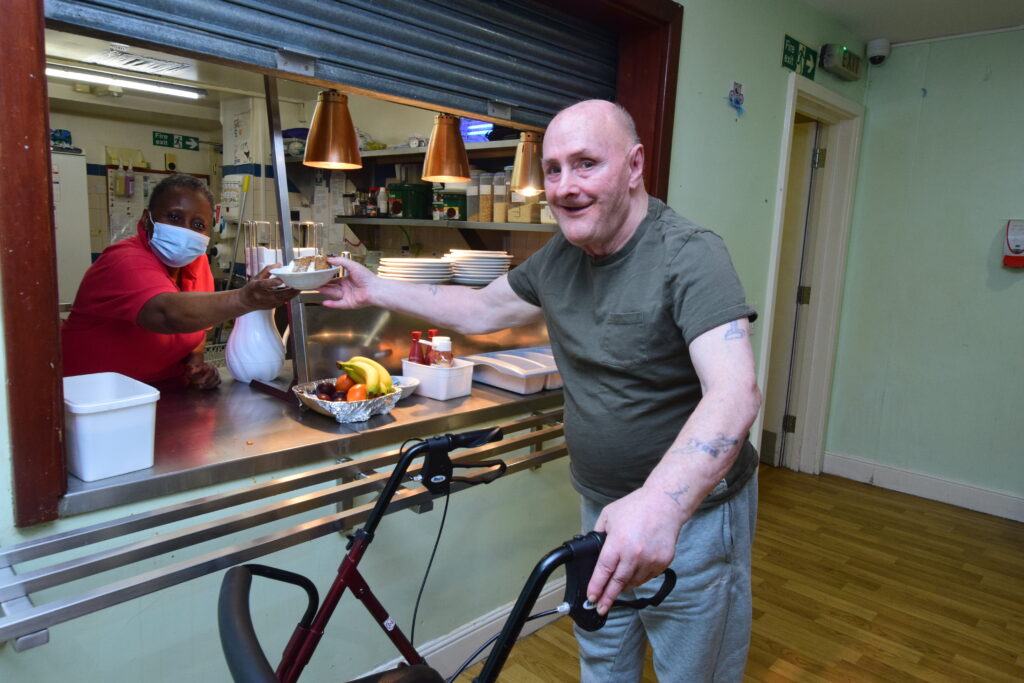Feature: Why we need to talk about homeless people’s access to social care
Rebecca Sycamore, Interim CEO of leading homelessness organisation St Mungo’s, writes for Social Care Today about the challenges in getting homeless people the help they need.
The aim of a homelessness organisation is surely to get people accommodated right?
Yes, of course, but as we at St Mungo’s know so well, this is only part of the process.
For a person to recover from homelessness and to go on to live a happy and fulfilling life they will often need support. This support comes in all shapes and sizes and St Mungo’s provides most types – from being a ‘safety net’ for people managing their own tenancies to hostels with staff on-site 24 hours a day.
But what we don’t hear enough about is the life changing consequences that living on the streets can have.
As Lee, who is now a resident at one of our CQC-registered care homes Hilldrop Road described: ‘When the weather was good it was tolerable but when it snowed or there was torrential rain, getting dry was a real difficulty, waking up in the sleeping bag all wet. You just have to sit there, it’s all you can do.’
For those, like Lee, rough sleeping has taken a huge toll on their physical and mental health. This can mean premature aging; a legacy of frailty and life limiting conditions.
However, many, if not all, homelessness services are not designed to support people who have care needs such as needing additional support with eating or washing, or who are experiencing dementia.

Most are focused on supporting people to move on and live more independent lives, but what happens when a person becomes less independent and needs more support?
This means that even the most supportive homelessness service is not the right place and all too often people can slip through the social care net.
Last Thursday we published our Life Changing Care Review.
St Mungo’s undertook this new review first and foremost to improve the care and support we provide to our clients. We chose to publish the results to shine a spotlight on this issue with the aim to open up the conversation and for this to lead to action
Our research was developed in partnership with the co clinical lead of the Homeless Health Programme at Healthy London Partnerships, Dr Caroline Shulman. It collates data from 31 of our non CQC registered services and reflects the needs of 1,442 clients
What we confirmed was what we knew anecdotally, there is a significant number of clients across our organisation who have additional physical or health care needs.
Our survey found that 8% of clients experience poor mobility and 5% are believed to have dementia.
The review also found that despite a significant level of need; many of our clients are not receiving the care that meets these needs.
There are a number of reasons for this. Most apparent is that there is a very limited supply of specialist care homes which are able to cater for the full range of needs common to people experiencing homelessness.
At St Mungo’s we know how much expertise and experience is needed – as we run two registered care homes for people who have been homeless.
We also know, that because our clients have often been exposed to multiple trauma, may have drug or alcohol dependencies, and may have significant mental health issues as well as physical care needs, often mainstream care homes are unsuitable.

And then there is demand – a lot of demand. As one of our care managers said ‘we could fill this home twice over with the referrals we get.
We also have a stretched adult social care system and while there is progressive and positive working going – such as the Local Government Association and Association of Directors of Adult Social Services guidance and the work of the Greater London Authority and London Councils’ ‘Life off the streets’ group.
We know that getting our clients’ care needs recognised and acknowledged – via Care Act assessments – can be challenging.
There can be a lack of awareness and understanding of this as a specific issue among some social service and heath care professionals.
We need to address this and improve efficacy of adult social care teams when working with people experiencing complex needs, one of our recommendations would be identifying and training a homelessness lead within the adult social care team.
The Government too has a vital part to play, for example, it should also emphasise the importance of timely and thorough care needs and adult safeguarding assessments for people experiencing complex needs.
In delivering the future vision for adult social care, including the delivery of the Integration White Paper and the Adult Social Care White Paper, Government also should encourage the integration of funding which is available to all the different partners, including social care, health, and homelessness.
And as we strive to reach our aim of ending rough sleeping in this country, and we get more people off the streets and into accommodation, the need to make sure that we all work together to make sure it is the right care and accommodation for that person will be even more pressing.
Photos provided by St Mungo’s















